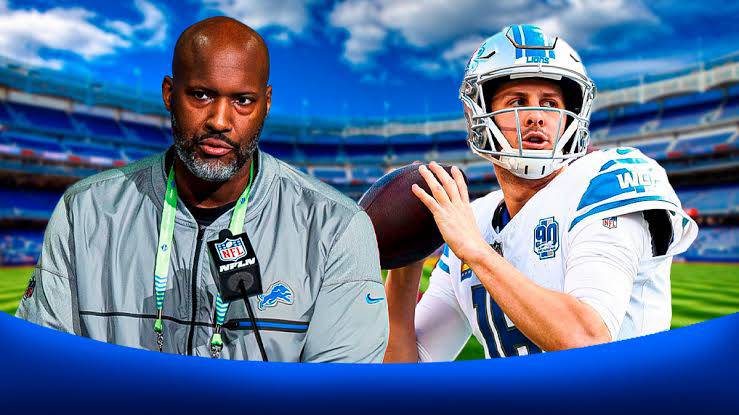The Dallas Cowboys Cheerleaders, long considered the gold standard of NFL dance squads and a cultural institution in American sports, have finally received the pay bump they’ve fought quietly to earn for decades. In a groundbreaking shift that reflects both the evolving landscape of professional sports and growing demands for fair compensation, the iconic cheerleading team has secured a significant salary increase that elevates them from underpaid entertainers to well-compensated professionals.
For years, the Dallas Cowboys Cheerleaders dazzled fans on game days, graced magazine covers, and played a central role in the Cowboys’ global brand. Yet behind the dazzling performances and star-spangled uniforms was a reality that clashed starkly with their public image: these women were grossly underpaid, sometimes making less per hour than minimum wage when factoring in rehearsals, promotional appearances, travel, and performance time. While the Cowboys franchise—valued at nearly $10 billion and consistently ranked as the most profitable team in the NFL—benefited handsomely from the cheerleaders’ global appeal, the women themselves received only a sliver of that revenue stream.
This new pay structure, set to take effect at the start of the upcoming NFL season, marks a major victory not only for the Dallas Cowboys Cheerleaders but also for cheerleaders across professional sports leagues. According to team sources, the base pay for cheerleaders will now double, with additional stipends for appearances, time spent at rehearsals, and bonuses based on tenure. This means veteran performers, who have often carried the weight of mentoring rookies and representing the brand in high-profile settings, will finally see their loyalty rewarded financially.
The announcement of the pay raise was met with emotional responses from current and former team members. Many have long advocated for better treatment and fair pay but were discouraged from speaking publicly due to fear of retaliation or being labeled “difficult.” Over the past decade, cheerleaders from various NFL teams—including the Saintsations (New Orleans Saints), Raiderettes (Las Vegas Raiders), and Buffalo Jills (Buffalo Bills)—have filed lawsuits demanding wage transparency and workplace protections. These legal battles were often drawn-out, costly, and emotionally draining, but they lit a fire under the broader movement for change.
For the Cowboys cheerleaders, change came more subtly—but persistently. In recent years, increased media scrutiny, fan awareness, and internal discussions helped shift the tide. Netflix’s docuseries “America’s Sweethearts: Dallas Cowboys Cheerleaders” played a significant role in drawing attention to the emotional, physical, and financial toll of being part of the elite squad. While the show celebrated the precision and pageantry of the cheerleaders, it also underscored their sacrifices—long hours of unpaid labor, strict appearance requirements, and constant pressure to perform at peak levels under immense scrutiny.
The new compensation package includes a guaranteed minimum salary per game, stipends for rehearsals that can run as long as six hours multiple times a week, and performance-based bonuses. Additionally, health and wellness resources will be expanded, giving cheerleaders access to mental health counseling, physical therapy, and nutrition guidance—benefits previously unavailable or inconsistently provided. Travel expenses, once inconsistently reimbursed or expected to be covered by the performers themselves, will now be fully funded by the organization.
For many within the Cowboys organization, the change represents a long-overdue course correction. Team owner Jerry Jones, long known for his meticulous control over the franchise’s operations, reportedly played a key role in approving the new pay structure. Insiders say that while the financial aspect of the decision was carefully considered, it was the cultural and reputational shift surrounding gender equity and worker rights that made the new agreement inevitable.
“Times are changing, and we need to evolve with them,” one executive close to the decision said. “The Dallas Cowboys Cheerleaders are as much a part of this team’s identity as the players on the field. They deserve to be respected and compensated accordingly.”
Still, the road to this point has been anything but smooth. Several former cheerleaders have gone public over the years, highlighting their struggles and sharing stories of having to work second jobs or rely on parental support just to remain on the squad. Despite working for the most valuable sports franchise in the world, some cheerleaders were earning less than $100 per game appearance. Appearances at charity events, promotional shoots, and training camp activities often went unpaid or were compensated at flat rates that failed to reflect the hours invested.
Former cheerleader Erica Wilkins, who filed a lawsuit against the Cowboys in 2018 alleging unfair pay and wage theft, was one of the earliest voices to shine light on the issue. Her case became a rallying cry for equity within the NFL cheerleading ranks. Though it was settled out of court, it stirred public opinion and laid the groundwork for further reform. Many believe that without the courage of former squad members like Wilkins, today’s changes would not have materialized.
Now, with financial recognition finally aligning more closely with the commitment required of the role, the Dallas Cowboys Cheerleaders are positioned to not only continue their legacy of excellence but also lead a new era for dance squads across the sports world. Advocates are hopeful that this will spark a domino effect across the NFL and other major leagues, forcing teams to reevaluate how they treat and compensate their cheerleading squads.
This milestone also arrives amid a broader cultural reckoning around labor rights and the value of women’s contributions to sports and entertainment. From the U.S. Women’s National Soccer Team’s fight for equal pay to WNBA players securing charter flights and higher salaries, women athletes and entertainers are demanding more—and winning.
The cheerleaders’ new contract also includes measures to increase transparency around expectations, disciplinary action, and opportunities for advancement. A mentorship program is being created that will allow veteran cheerleaders to take on official leadership roles, providing guidance to rookies and acting as liaisons to management. This institutional support has long been needed and further underscores the franchise’s renewed commitment to empowering its most visible ambassadors.



